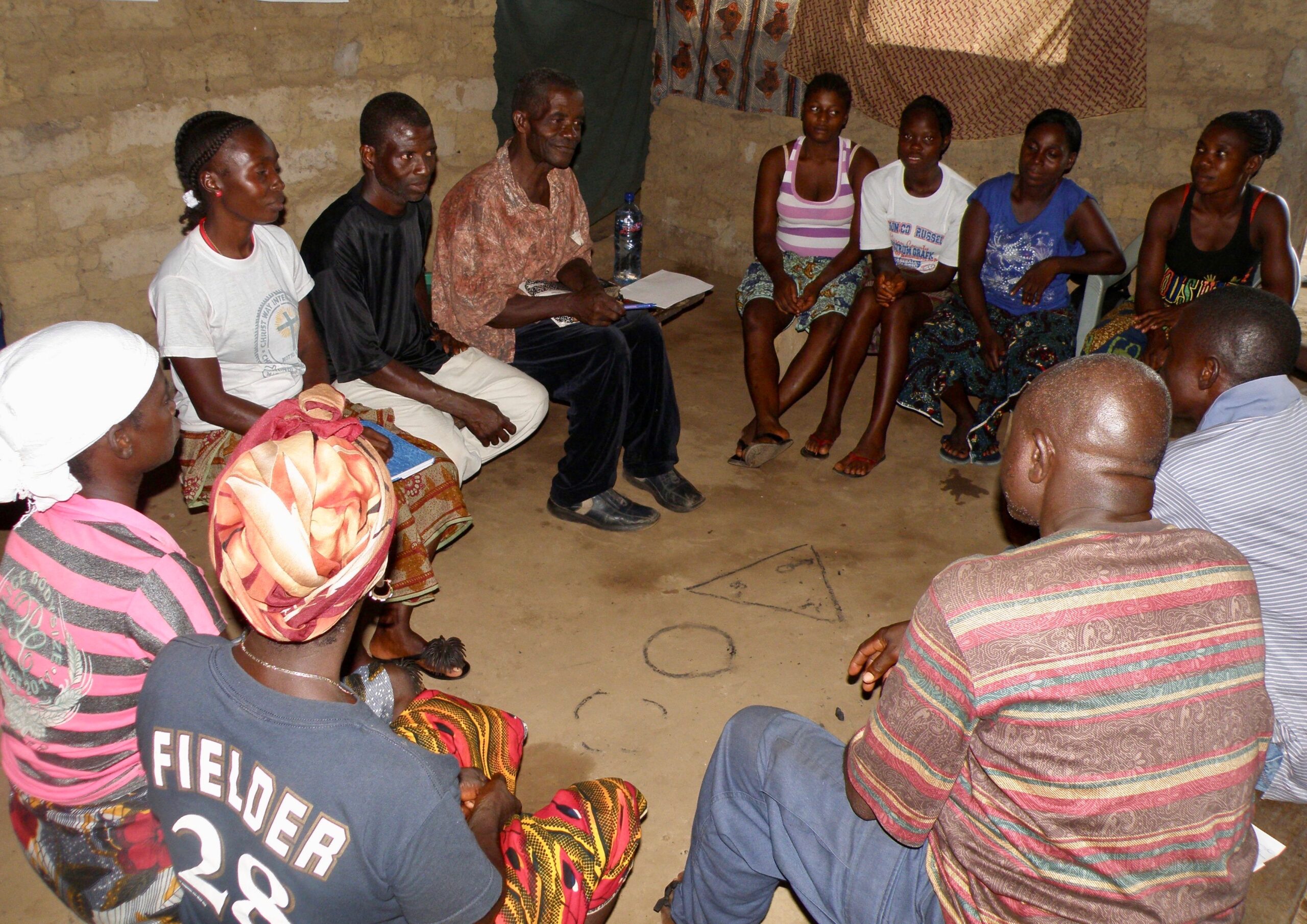The world today is marked by deepening fractures, geopolitical tensions, violent conflicts, rising nationalism, and the mass movement of people across borders. In many places, trust in institutions is eroding, while communities struggle under the weight of unaddressed trauma, inequality, and division. Mental health systems are stretched thin or altogether inaccessible, especially in crisis-affected regions.
At the same time, polarisation and social isolation are on the rise, even in countries not directly affected by war. Public debate grows more hostile, and communities find themselves pulled apart by fear, suspicion, and misinformation. The result is a world in which many people feel unsafe, unheard, and disconnected from one another. It is in this context we notice that an increasing number of people are actively searching for ways to improve social wellbeing, restore social cohesion and (re)build connections in their communities.
One of the methodologies working on this is community-based sociotherapy, CBS in short. CBS builds on the idea that people are active agents in change, meaning that if people are willing and able to participate in the CBS group, they bring change in the social fabric of their immediate social environment at their own pace. People are learning together and experiencing their own responsibility for setting and achieving goals. CBS brings people together in small groups, gradually (re)building the social fabric in their community. Trained facilitators from the same community create a safe, structured space for participants to connect, reflect, and heal together.
The CBS methodology is characterised by structure and a variety of methods and tools used. The structure refers to the rules of the group, developed and adopted by the group itself, the structure of the group sessions, and the structure of the 6 phases guiding the group sessions. The six phases include safety, trust, care, respect, new life orientation, and memory. The idea behind the phases is that people in groups go through these phases step-by-step, sometimes faster, sometimes slower. Guided by two facilitators, the group starts by creating safety. Once the group experiences safety and people start acting accordingly. At that time, there is room to move to the phase of trust. Each phase is accompanied by specific topics and exercises to encourage learning. At times, the group moves back to a previous phase in case something happens in the group which challenged the feelings of safety in the group.
The diverse methods used in CBS are deliberately chosen tools and exercises. Given the many ways of learning, a variety of intercommunicating methods are used to allow all sorts of motivating or hindering triggers to surface. We use methods including dialogue, group assignments, homework assignments, games, relax & refocus games, and role-plays. Throughout all sessions, 7 guiding principles are being applied in everything we do: Inter-est, Equality, Democracy, Participation, Responsibility, Here-and-Now and Learning-by-doing. In line with the theory of Group Dynamics, the importance of groups lies in the opportunities the group provides for learning about behaviours and attitudes among its participants.
An important aspect of CBS is that the meaning of the above-mentioned concepts, phases, and principles are not pre-determined, but meaning will be given to these concepts by the groups. CBS offers the participants a safe and constructive way to redefine social concepts together. Often, we start working in communities where social fabric has been affected by conflict. Institutions and social structures that people once relied on were destroyed or lost their credibility during conflict or crisis. In this context of broken trust, CBS groups offer a safe environment where people can come together to redefine and practice new social dynamics, ones they develop and agree upon collectively. The idea is to first establish safety and trust within these small groups. As more groups engage in this process, the positive change begins to spread organically. Like ripples across water, gradually rebuilding the social fabric of the wider community.
CBS offers a locally grounded, human-centred approach to rebuilding what has been broken, not only within individuals, but between people. It empowers communities to take responsibility for healing, using methods rooted in shared values, cultural sensitivity, and mutual support. CBS does not rely on external experts or distant systems; instead, it reconnects people with each other, helping them rebuild trust where it has been lost. In doing so, it lays the foundation for resilient, peaceful, and inclusive communities.
Now more than ever, we need approaches like CBS to help us reweave the social fabric, one group, one story, and one community at a time.

